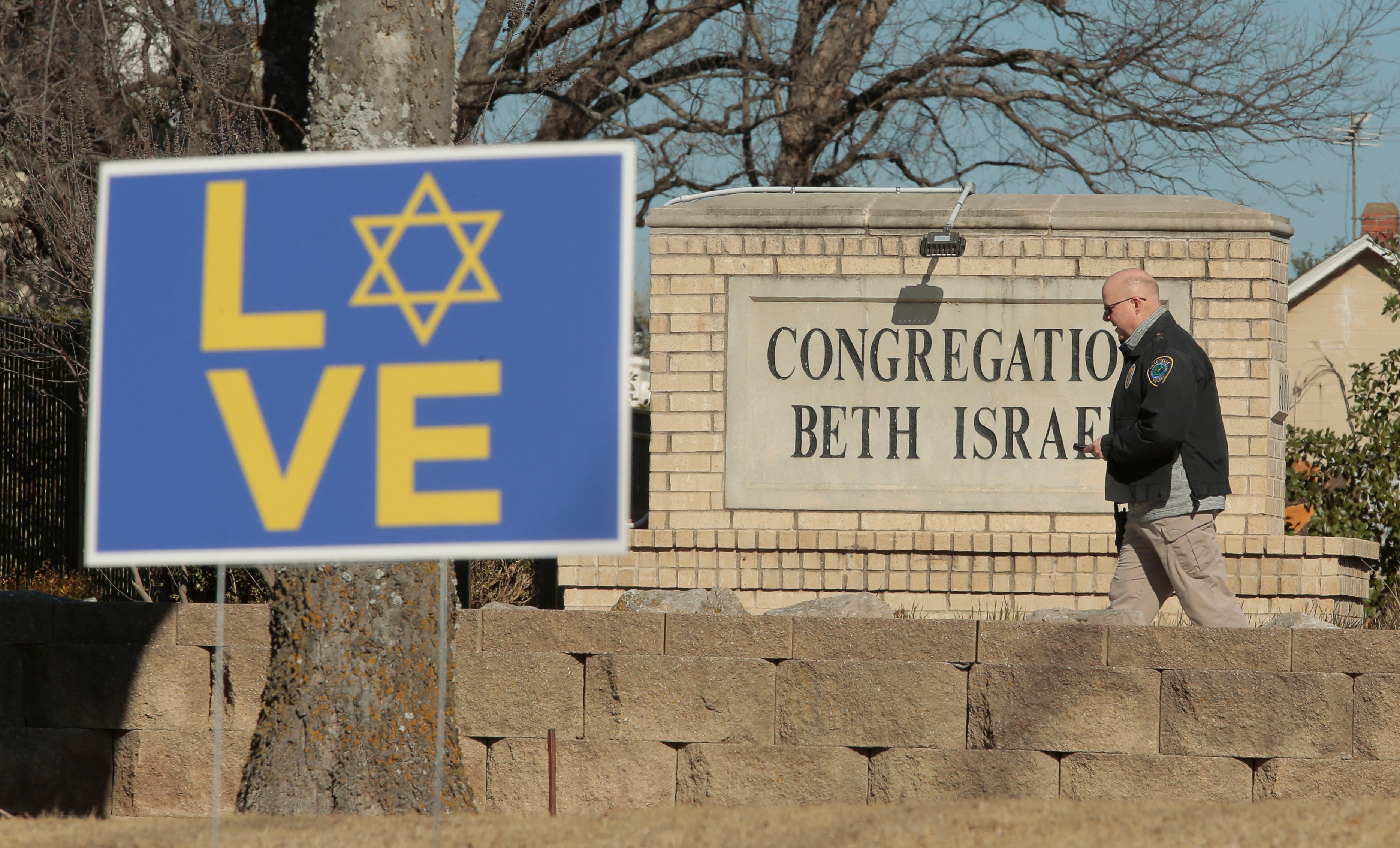Faisal Akram: Texas synagogue hostage-taker had been referred to government counter-extremism programme twice
Future attacker was not referred to ideological intervention programme, and was later investigated by MI5
The British man who was shot dead after taking hostages in a US synagogue was flagged to a counterextremism programme twice in the years leading up to the attack.
Faisal Akram, 44, was referred to Prevent in 2016 and again in 2019, The Independent understands.
He was not referred to the Channel programme, which sees people paired with intervention providers, on either occasion.
Prevent is subject to a long-delayed official review, following years of concern about its effectiveness and allegations of discrimination and stifling free speech.
In 2020, Akram was investigated by MI5 but not considered an imminent threat and the probe ended – leaving him in a pool of more than 40,000 closed subjects of interest.
Questions remain unanswered over how Akram, who also had previous criminal convictions, was able to obtain a visa and travel to his target in Texas.
The father of six from Blackburn was shot dead by law enforcement after taking hostages at the Congregation Beth Israel synagogue in Colleyville, Texas, on 15 January.
Akram was known to local police in Lancashire for previous criminal offences, and in 2001 had been banned from Blackburn Magistrates Court after ranting about the 9/11 terror attacks.
He has been linked to the Blackburn, Burnage and Manchester areas, and flew into John F Kennedy International Airport in New York around two weeks before the synagogue attack.
US president Joe Biden said he spent at least one night in a homeless shelter and purchased the gun used in the attack “on the street”. He branded the incident “an act of terror” and said Akram made “antisemitic and anti-Israeli comments”.
One hostage was freed after around six hours, and three others managed to flee after a rabbi threw a chair at Akram.

He was shot dead by US law enforcement at the end of the 10-hour standoff.
Part of the incident was livestreamed on Facebook, after being caught on the synagogue’s routine broadcast of its Shabbat morning service, but was taken offline by the social media giant.
Akram could be heard talking to what appeared to be an FBI negotiator and family members on the phone. “Don’t f***ing cry over me, have a party,” he said at one point. “I’ve got hostages and I’m surrounded and I’m going to die, OK?”
He demanded the release of Pakistani neuroscientist Aafia Siddiqui, who was convicted of trying to kill US army officers in Afghanistan, and is in prison in Texas.
Her case has become a cause celebre among terrorist groups including al-Qaeda and Isis, and her release has been among the demands listed by previous hostage-takers in Pakistan, Afghanistan, Algeria and elsewhere.
A recording obtained by the Jewish Chronicle showed Akram ranting about Jews and American military intervention in countries including Afghanistan, as his brother pleaded with him to give up and free the captives.
Gulbar Akram urged his brother to lay down his weapons, telling him: “You don't need to do this. Why are you doing this? Just pack it in. You'll do a bit of time, and then you'll get out.”

“These guys you've got there, they're innocent people, man,” Gulbar pleaded.
In response, Akram became increasingly agitated and said he hoped US authorities would take notice of the Jewish hostages and release Aafia Siddiqui. He said he had prayed about the attack for two years, and that he was ready to become a “martyr”.
The FBI, with support from British counterterror police, are investigating why Akram targeted the synagogue and the motivations behind the hostage-taking.
Counter Terror Policing North West are questioning two men who were arrested on Thursday in relation to the attack. The unit previously arrested two teenagers in Manchester as part of the investigation, but later released them from custody without charge.




